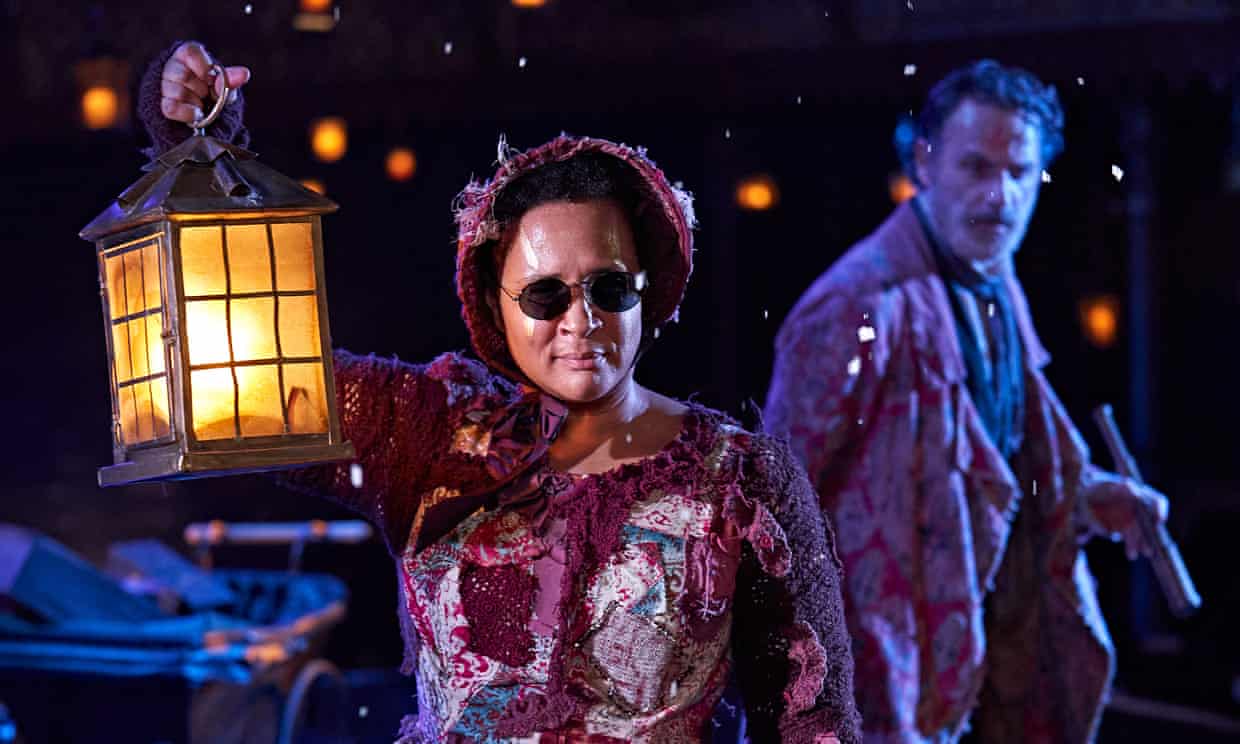Community, Leadership, Experimentation, Diversity, & Education
Pittsburgh Arts, Regional Theatre, New Work, Producing, Copyright, Labor Unions,
New Products, Coping Skills, J-O-Bs...
Theatre industry news, University & School of Drama Announcements, plus occasional course support for
Carnegie Mellon School of Drama Faculty, Staff, Students, and Alumni.
CMU School of Drama
Friday, February 26, 2021
Hello Las Vegas! How livestreaming is transforming the stage
Stage | The Guardian: As Christmas season dawned at the end of last year, two American critics had a crash course in that most British of theatre traditions, pantomime, dropping in remotely to eight shows for the New York Times. “I felt like an ethnographer studying a foreign culture’s strange ceremonies,” wrote one, while the other enjoyed the peppering of Covid-related jokes, including the insertion of “fiiiiiive toilet rolls” into The 12 Days of Christmas.
Subscribe to:
Post Comments (Atom)

2 comments:
I remember paying or funding for so many performances that were live-streamed after the COVID situation. When I was watching the recorded musicals on The Show Must Go On YouTube channels or other musicals from Korean websites, I wondered why the musical companies do not make a huge business out of the CDs that contain the recording of the performances. Now that I think of them a little deeper, I see how there could be so many difficulties and features that needs to be adjusted. Just thinking about the simple things, for example, how to maintain the sight-lines when filming from different perspectives and how to control all the sound channels, already makes my head hurt. However, I really don’t think expanding the recordings or live-streamings are going to be a threat to live performances. I agree with Kenyon stating that it should not be viewed as competition but more of a hybrid option. I even believe that widening the recordings would encourage more audience to come to actual show as they would want to see the actual performances with their own eyes.
As we all know very well by now, over the past year, Covid-19 has turned the world completely upside down, especially in the live entertainment industry. That being said, we as entertainers have proven time and time again that we can adapt to any situation we may find ourselves in. When performing live on stage for a full audience of disease vectors became an issue roughly a year back, we set to work finding alternatives, mostly in the way of online theatre. Not only did this allow us to start getting back to work, if even just a little bit, but it has also proven that theatre can be much more accessible. In the case of this article, a show streamed live from Australia reached audiences in over 25 different countries around the world. This type of reach is incredible and truly beyond anything live performances have accomplished before. The article does mention the drawbacks of underpaying those working on the production, which is certainly still a massive issue, but when the world begins to return to non-pandemic times, perhaps we can take what we learned about live broadcast, and once the funding is available, maintain our broadcasting of such events while also providing the crew their rightful compensation.
Post a Comment